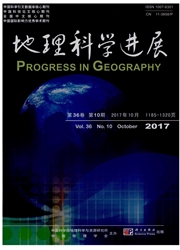

 中文摘要:
中文摘要:
本文通过对个体生命历程的考察,从微观视角探讨苏南20世纪80年代以来的城镇化路径转变以及转型中的农民市民化进程。地方政府在中国行政和经济分权、土地、住房等一系列改革中不断追求地方利益最大化,从而促使苏南从早期的以乡村工业化为动力、以小城镇为载体的"自下而上"式城镇化,转向由开发区建设和土地财政所推动的快速城镇化。城镇化路径转变也影响了苏南农民的生命历程,文中个案就经历了从乡镇企业家、私营企业主到失地农民的身份变迁。在苏南农民的市民化进程中,个体经历了不同"行动地位"的转变:乡镇企业时期,农民参与乡村工业,主动进行就业的非农化;但到了征地拆迁时期,农民在政府推动下,通过户籍改革和安置上楼进行了身份的城镇化,这个阶段的市民化,更多源于政府的主动推动,农民带有"被动接受"的成分。另外,早期的就业非农化成为后期村民顺利实现身份城镇化的基础,解决了村民失去土地、安置"上楼"后的经济来源问题,这对当前新型城镇化所倡导的"人的城镇化"具有一定启示。
 英文摘要:
英文摘要:
Most studies on China's urban transformation employ macro level socioeconomic and political analysis perspectives such as marketization, globalization, and decentralization. Based on the life course of a farmer- entrepreneur in Southern Jiangsu, this study discusses China's urban transformation at a micro level and the citi- zenization of famers in the transformation. Analyzing urban transformation with a life course approach not only links individuals' life events to changes in grand social history, but also manifests the interaction and maps rela- tions between the history of individuals' lives and the economic and social development. The Southern Jiangsu ar- ea has experienced urban transformation since the 1980s. In the 1980s, urbanization of Southern Jiangsu was grounded in rural industrialization and town development, which was called the "urbanization from below." On the one hand, township enterprises had absorbed a large number of rural surplus labors and as a result, a great number of towns appeared. On the other hand, township enterprises provided funding for urban construction. But since the 1990s, Southem Jiangsu has undergone a rapid urbanization stimulated by development zones that at- tracted foreign investment and land finance. The govemments' development strategy tumed to development zone construction and land finance. Heavy intervention imposed on township enterprises by local governments ham- pered the development of those enterprises. Meanwhile, as a consequence of decentralization, institutional chang- es in the land market, and globalization, the local government of Southern Jiangsu can no longer rely on town- ship enterprises and has to capitalize on the land to pursue the maximization of profit. From the micro level per- spective, the transformation influences roles, events, and opportunities in individuals' life course. The farmer-en- trepreneur in this study was a factory manager in a township enterprise at first, then he ran a private corporation, and finally, because of
 同期刊论文项目
同期刊论文项目
 同项目期刊论文
同项目期刊论文
 期刊信息
期刊信息
